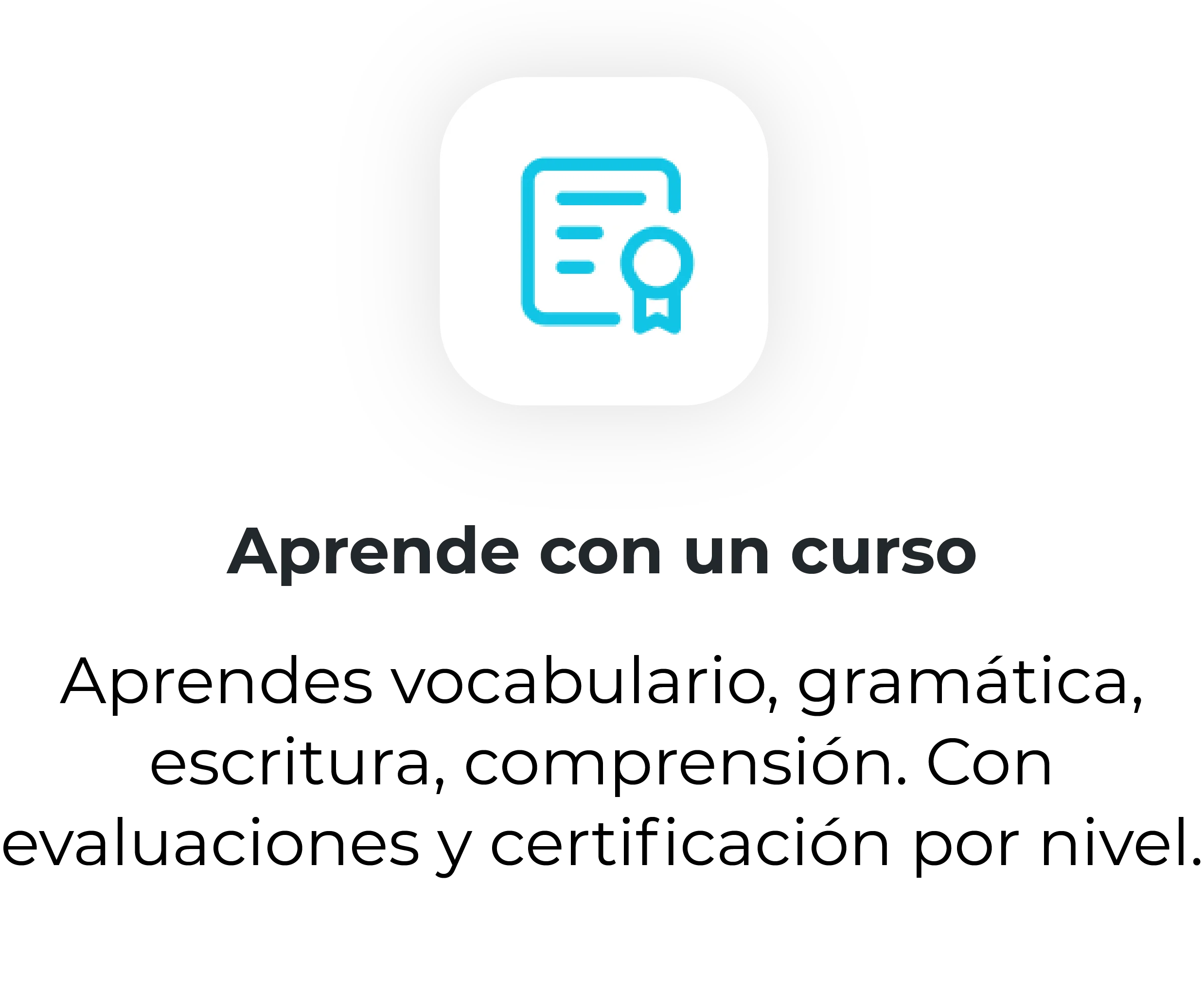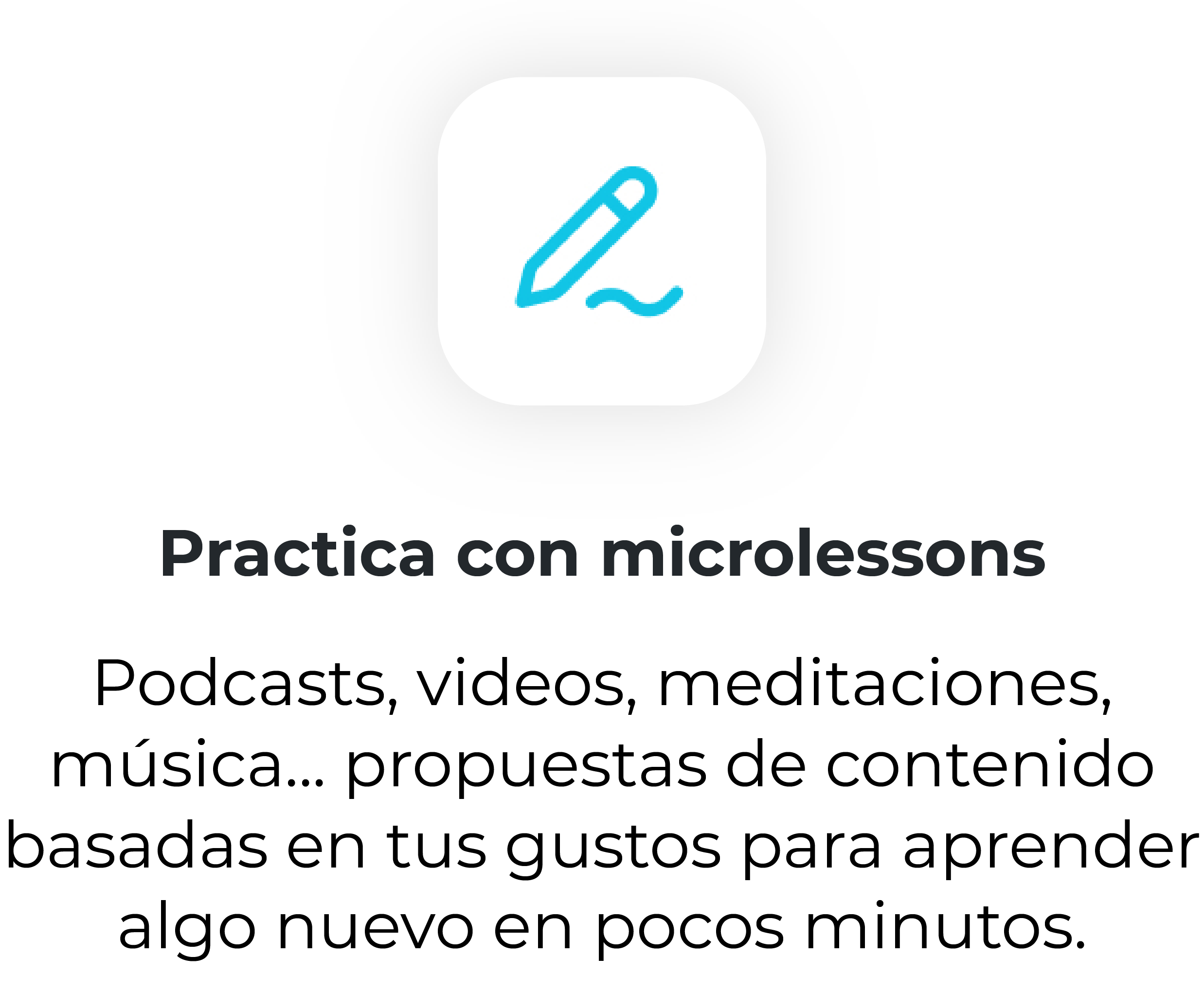El verbo modal ought to
¿Sabes cómo utilizar el verbo modal ought to? A continuación, ABA English te enseña qué es, cómo conjugarlo correctamente y en qué contextos lo puedes utilizar.
Qué es el verbo modal ought to
Ought to es un verbo modal que se usa principalmente en contextos formales o por escrito y tiene un sentido un poco similar al verbo modal should. A diferencia de los demás modal verbs, el verbo modal ought to se compone de un primer elemento, “ought” seguido del to, lo que implica que el verbo que viene después debe ser en su forma infinitiva. Y como los otros verbos modales, no cambia de forma para corresponderse con el sujeto.
Usos del verbo modal ought to
Para expresar obligación
Ought to se utiliza para expresar una obligación de manera muy formal. También se puede interpretar no tanto como obligación sino como expectativa de algo que debería ocurrir.
Oraciones:
- You ought to share. (Debes compartir.)
- You ought to study more. (Debes estudiar más.)
- You ought to be polite to everyone. (Debes ser amable con todo el mundo.)
- We ought to respect the law. (Debemos respetar la ley.)
Para expresar probabilidad
Ought to se utiliza también para manifestar la probabilidad de que algo ocurra.
Ejemplos:
- The cake ought to be ready in about 20 minutes. (El pastel debería estar listo en más o menos 20 minutos.)
- We ought to arrive by midnight. (Deberíamos llegar a la medianoche.)
- She ought to reach her goal by next month. (Ella debería alcanzar su meta el próximo mes).
Para expresar deseo de lo que sería ideal
Ought to también puede utilizarse para expresar cosas que se desean o se creen ideales.
Frases:
- We ought to eat less candies. (Deberíamos comer menos golosinas.)
- We ought to be kinder to each other. (Deberíamos ser más amables los unos con los otros.)
- He ought to read more books. (Él debería leer más libros.)
- We ought to live peacefully. (Debemos vivir de forma pacífica.)
- I ought to go outside more to enjoy nature. (Debo salir más para disfrutar de la naturaleza.)
Para expresar arrepentimiento
Cuando usamos el verbo modal ought to + have + participio pasado del verbo principal, manifiesta arrepentimiento por algo que no se hizo. También se puede utilizar para reprochar a alguien lo que hizo o no hizo.
Ejemplos:
- I ought to have been by your side. (Debí haber estado a tu lado.)
- I ought to have listened to you. (Debí haberte escuchado.)
- You ought to have helped him. (Debiste haberle ayudado.)
- She ought to have answered the email. (Ella debió haber respondido el correo.)
- I ought to have spent more time with my family. (Debí haber compartido más tiempo con mi familia.)
- He ought to have eaten less. (Él debió haber comido menos.)
Regístrate gratis y empieza
ya con tu curso de inglés.
Oraciones interrogativas del verbo modal ought to
Se utiliza ought to para hacer preguntas de manera formal. En este caso, el sujeto va entre ought y to.
- Ought I to intervene? (¿Acaso debo intervenir?).
- Ought you to make that sacrifice (¿Debes hacer tú ese sacrificio?).
- Ought she to do it herself ?(¿Acaso debe hacerlo ella misma?).
- Ought we to build a better future? (¿Acaso debemos nosotros construir un mejor futuro?).
- Ought they to study more for the test? (¿Acaso deben ellos estudiar más para la prueba?).
Ejemplos del verbo modal ought to en negativo
Cuando se utiliza la forma negativa, not va entre ought y to.
- You ought not to steal. (No debes robar).
- You ought not to commit injustices. (No debes cometer injusticias).
- You ought not to fall asleep in class. (No debes quedarte dormido en clase).
- The cake ought not to be ready in 20 minutes. (La torta no debería estar lista en 20 minutos).
- I ought not to have regretted traveling the world. (No debí haberme arrepentido de viajar por el mundo).
Contracción de ought not to
La contracción de la forma negativa de ought to es oughtn’t to.
- You oughtn’t to have been rude. (No deberías haber sido grosero.)
- You oughtn’t to have said that. (No deberías haber dicho eso.)
- We oughtn’t to have stayed silent before that injustice? (No deberíamos haber quedado en silencio frente a esa injusticia.)
Ejercicios para practicar ought to
A. Rellena los espacios en blanco usando y oughtn’t según corresponda.
- You __ to respect the law. (Debes respetar la ley.)
- To be successful in life, you ___ to be disciplined. (Para ser exitoso en la vida, debes ser disciplinado.)
- She always arrives on time, so she__ to be late today. (Ella siempre es puntual, por lo que no debería llegar tarde hoy.)
- We want to represent our country in the best way we can, so we___ to misbehave when visiting other countries. (Queremos representar a nuestro país de la mejor manera posible, por ello, no debemos portarnos mal cuando visitamos otros países.)
B. Rellena los espacios en blanco con la forma negativa de ought to.
- (We) __ wait two days for a new flight? (¿Acaso debemos esperar dos días por un nuevo vuelo?)
- You ______ to use the car without asking. (No debes usar el auto sin antes pedirlo.)
- (He) ___ cook dinner tonight? (¿Acaso debe él cocinar la de cena de esta noche?)
- (I)__ be heard? (¿Acaso no debo ser escuchado?).
- You ____ be unkind. (No debes ser antipático.)
- (She)____ do all the work while we do nothing? (¿Acaso debe ella hacer todo el trabajo mientras nosotros no hacemos nada?)
Respuestas
A.
- Ought
- Ought
- Oughtn’t
- Oughtn’t
B.
- Ought we not to
- Ought not
- Ought he to
- Ought I not to
- ought not to
- Ought she to
Otros enlaces de tu interés:

¿QUIERES CONTINUAR?
Te esperamos en ABA English
Somos la primera academia digital de inglés que te ofrece un
curso guiado y personalizado












¿QUIERES CONTINUAR?
Te esperamos en ABA English
Somos la primera academia digital de inglés que te ofrece un
curso guiado y personalizado













